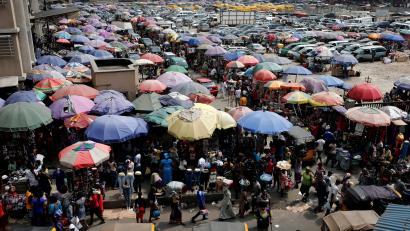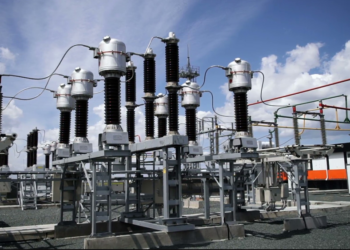Back in school one of my favorite topics was the M&M theory. The theorem states that, “under a certain market price process (the classical random walk), in the absence of taxes, bankruptcy costs, agency costs, and asymmetric information, and in an efficient market, the value of a firm is unaffected by how that firm is financed”. What this simply means is that one common factor that differentiates one successful business from another is their individual ability to mitigate and exploit the effect of taxes and market information in their business activity.
Several factors affect the survival of a business no matter how big or small. However, some factors are within the control of the managers of the business and the other outside the control of the business. Whilst the M&M theorem basically focuses on the factors that are not within your control, other factors within your control also affect the survival of your business. In my opinion, factors within your control are by far the quickest ways to kill a business. Let us explore some of them;
Not separating the business from the owner/managers

This is simply the way your business is being run. Most small businesses in Nigeria are owned by one person and as a result they are run incoherently without any formal structure. Most times they have no form of separating personal cash from cash meant for the day to day running of their business. It is either they are drawing from the business or lending to it without any record to show who is owing who. Sometimes, they use the cash generated from one business to fund the startup of another ending up killing the original business.
A cycle that continues so long as the owners are making ends meet. By running the business as a one man show, employees (if any) are hardly carried along and merely see the business as a means to survive rather that as a venture that they can help grow. Businesses run this way (in no time) end up falling by the way side or simply just get sold. The business dies leaving the owner to start another venture.
[READ ALSO: Things you should know before starting a business]
Cash Flow

There was this manufacturing company that announced a 20% increase in revenue leading to a 12% increase in earning per share for shareholders. The company will go on to declare a dividend helping raise shareholder’s confidence. Unfortunately, the company failed to tell its uninformed shareholders they had to borrow to pay dividends despite making profits. Liquidity is the lifeline of any business. Without cash your business will simply fail and it doesn’t matter how much assets you have.
Most small businesses often believe in acquiring many assets without stashing of enough cash. I recognize that by investing in assets business owners can leverage on it to borrow money or sell it in times of need. But what if there is an immediate need to source money at a time when lending is tight and asset prices have depreciated? This was the problem Lehman Brothers had when they collapsed in 2008.
Whilst they had so much money tied up in assets they could not sell it to raise enough capital to pay their creditors thus leading them to bankruptcy. As a small business, you must always keep adequate cash reserve. One way to know how much cash you need is to do a cash flow analysis of your previous months transactions. If you spend N2million monthly on running your business then it is advisable to always have N4million as cash at the end of every month.
Too much debt

As mention above without cash no business can survive as such business without cash mostly result to borrowing. Small Business loans mostly come in the form of overdrafts and are used to fund running cost in the hope that expected revenues will repay the debt. However, in some instances some divert the money into other uses that add no value to the growth of the business.
[Read Also: I love to look at Revenue Reserves and This is Why]
In fact some who utilize loans for the right purpose end up finding it hard to pay back not to talk of those who use it for other unproductive means. A company with too much debt will someday have to repay the debt; and without finding other sources of repaying the debt the banks will have no option but to liquidate the company.
Too Much Creditors

“No credit today come tomorrow” is a common sign post you find at the door of most small businesses. Business do need to grant their customers some credit sometimes. It is a common business metric provided it is properly measured and for the right business model. Some businesses are best suited for credit whilst some aren’t at all. Manufacturing businesses and wholesale ones are more predisposed towards granting credit. However retailers and service providers should try as much as possible to avoid granting credit or limit the the amount of credit given to the minimum. For example, a reseller of recharge card does not expect to sell on credit when MTN hardly does. That s why when you owe a GSM provider they cut your line.
Square Peg in the round Hole

Employees are one of the most important assets of a business. The more skilled and qualified your emloyees are in their job the more likelihood you are expected to succeed. Small businesses should endeavor to recruit the best possible employees they can find to handle job responsibility. No point employing out of pity when you have the financial resources to employ quality. In addition to that, your employees must be frequently trained to ensure that they are ready to compete in a dynamic and competitive environment. Most business owners erroneously see this as a waste of money. Employees have been known to single handedly bring down companies because the managers placed enormous responsibility on them without proper checks and balances. If you employ a staff without proper background checks to handle cash or critical aspects of the business then you stand the risk of loosing your cash and maybe the business itself.
Fixed Cost

A common feature of shopping malls in Nigeria are the rate at which one shop replaces another. You go to a mall today only to come back a few months later and the shop is no longer there. Some attribute this to their inability to sell products as most visitors to the malls often end up window shopping. Another major reason is the amount of Rent these shops pay. Businesses that incur high fixed cost are more likely to fail quicker than those with higher variable cost and lower fixed cost. Imagine having a shop at a mall where you have to pay a yearly rent of N12million. That means your business must be able to generate cash revenues of N12million annually just to at least be able to pay rent. That can be onerous considering that you still have to spend money on marketing, salaries, purchase of goods and services, taxes etc.
Overestimating the Market

Most of us go into businesses with or without a proper business plan. However, having a business plan does not guarantee that a business will be a success. A major reason for this is making very optimistic assumptions about the market without putting a backup plan should our estimates fail. For example, we may believe that by sighting a business at a particular location may seem like a good idea because of the huge population residing in the area. However, their purchasing power and their immediate need for the product is also a crucial factor. Sometimes too we over estimate the demand for a product because of the lack of it. There is hardly a reprieve for businesses that overestimate the market. They fail quickly.
[READ ALSO: 10 Financial management tips to guarantee the survival of your start-up]
Bad Publicity

Recently a very popular food company had a huge problem at their hand. Someone had spread a rumor that their food was had a chemical that had killed some people. They quickly went on a massive publicity spree to debunk the claim and solicited the heap of regulators such as NAFDAC to help debunk the claim. They knew that negative publicity such as this could in one day wipe out all the brand assets they have toiled to build and nurture over the years.




















Ogilisi Igbo liked this on Facebook.
Ogilisi Igbo liked this on Facebook.